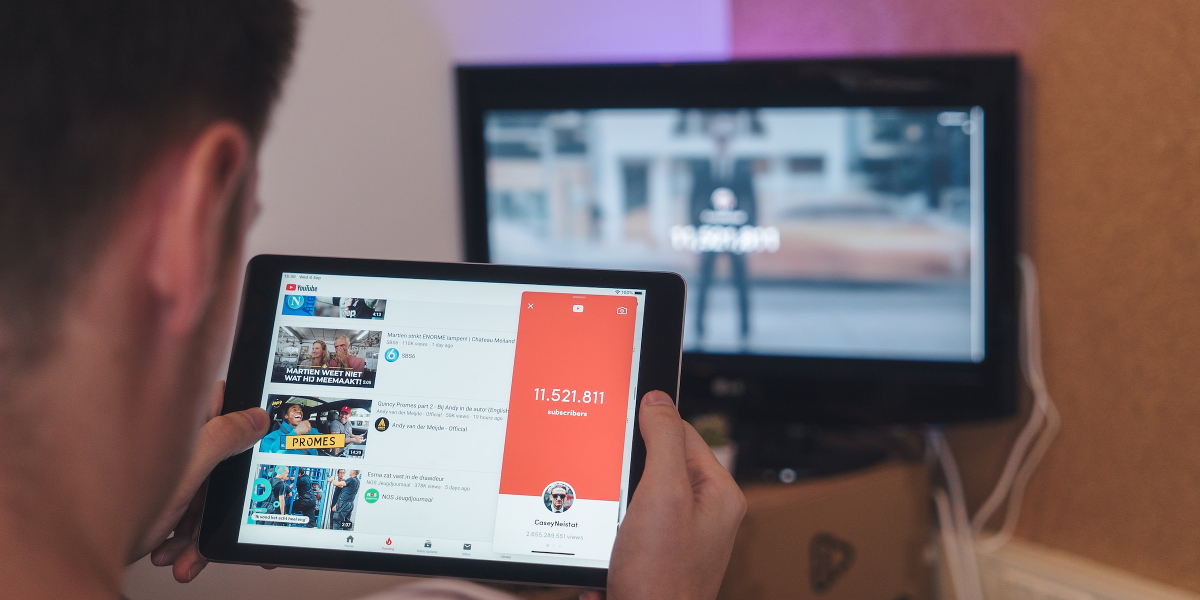 There’s a new fashion amongst online video executives in London. Whenever you slate the TV industry for being too slow to act on digital or make a prediction about its demise, it’s now customary to finish the sentence with the words ‘…except Sky’. This is a new development. Even a year ago, BSkyB would have been regarded by many as a sitting duck – albeit a highly regarded one – that appeared to be focused only on protecting its core business.
There’s a new fashion amongst online video executives in London. Whenever you slate the TV industry for being too slow to act on digital or make a prediction about its demise, it’s now customary to finish the sentence with the words ‘…except Sky’. This is a new development. Even a year ago, BSkyB would have been regarded by many as a sitting duck – albeit a highly regarded one – that appeared to be focused only on protecting its core business.
After all, BSkyB has led the UK’s TV industry attempts to push to stay one step ahead of the Internet. And for a long time those strategies have been successful. The increased focus on live broadcasting has been one strand of that strategy, with sports and live talent/music/dancing shows pushed to the fore. Then there has been the shift towards HD and 3D broadcasting. But over the last couple of years the Internet has finally started to catch up, courtesy of higher broadband speeds and the emergence of OTT services like Netflix and Lovefilm.
Defying the Digital Narrative
So, with the digital sharks circling the TV industry, you’d be forgiven for assuming TV is going to roll over in the same way the publishing and music industries did before it. You know how it goes: the online alternatives arrive on the scene while the industry’s incumbents cling desperately to their old – but still profitable – business models. Then the established players procrastinate and fail to properly invest in digital for fear of cannibalising their existing business. Eventually, as consumer demand shifts towards the online model, the traditional companies either disappear completely or adapt years later than they should have, going from major player to faded glory in a few short years.
Up until 12 to 13 months ago, there wasn’t much evidence of a BSkyB digital strategy for delivering TV over IP. But since then it has started to execute what – at the risk of sounding sycophantic – appears to be a robust, brave and forward-looking digital strategy:
- June 2011 – announces a 50% increase in spending on original programming over the following three years, taking the total spend up to £600 million per year by 2014.
- July 2011 – launches Sky Go to deliver Sky content across mobile, tablet and PC devices.
- January 2012 – BSkyB takes a 10% stake in Zeebox, one of the leaders in the race for the second screen. Sky will also sell Zeebox’s ad inventory on its behalf.
- June 2012 – wins rights to Premiership football at a cost of £2.3 billion, starting from the 2013-14 up to 2015-16.
- July 2012 – launches Now TV, a trimmed down pay as you go Sky offering designed to take on the online OTT services such as Netflix and Lovefilm.
- July 2012 – announces £6.5 million investment in Roku (BSkyB’s investor and potential suitor, News Corporation, also invested in a $45 million round).
- July 2012 – acquires producer-distributor Parthenon Media, which will form a new division devoted to international content distribution.
Thus far, the BSkyB strategy, which all TV executives would do well to pay heed to, appears to be along the lines of:
(a) Imitate potential disruptors and meet consumer demand for alternative services while the market is still nascent and you’re still strong. Fears that you will cannibalise your core offering should be offset against the possibility of new entrants gaining a foothold with consumers you could previously afford to ignore.
(b) Failing that, invest in ‘best-in-class’ companies (or at least somewhere close) who threaten to disrupt your model while they’re still relatively small and at a stage where they can benefit not just from your financial investment, but also from your resources, content and expertise.
(c) Content is still king and will continue to be the core of any offering regardless of what new-fangled gadgets or services Apple, Google or anyone else brings to the market in the coming years. But rights alone aren’t enough and can be lost as easily as they’re won – own your content whenever possible.
(d) With many hardware manufacturers creating walled gardens via TV EPGs and/or OTT devices, it’s going to be important to have some sort of stake in the companies producing the hardware necessary for distribution.
Put all of these moves together, and a picture emerges of a company that ‘gets digital’ and realises that now is the time to start swinging punches. But perhaps we shouldn’t be too suprised considering BSkyB’s longstanding reputation for being open to experimenting with new technologies.
An Ad Tech Early Adopter
Even putting their more recent efforts in IP-delivered TV aside, the company is highly regarded by people working in ad tech. In display advertising and mobile advertising, BSkyB has been experimenting with data, ad exchanges and real-time bidding (RTB) since the early days. Having that kind of expertise in house will stand it in good stead when it comes to anticipating the ways in which data-driven advertising could – and couldn’t – disrupt the traditional TV advertising model.
But BSkyB’s approach to online isn’t a typical one. Ask anyone working in digital who have been trying to persuade the major broadcasters to move online, even if it’s just a question of improving their VOD offering or how they monetise their inventory, and you get a very different picture. Time and time again, the same issues crop up. ‘It takes forever for them to make even the smallest decision’ is a common refrain. ‘They just don’t get it’, is another. ‘It’s like watching the death of the music industry all over again,’ is, sadly, another.
He Who Knows the Past Controls the Future
So what is it that makes BSkyB different? You could point to its considerable resources, but there are plenty of large players who aren’t adapting in the same way. Another possibility is its heritage. After all, BSkyB was the UK TV market’s original disruptor and it’s possible the leadership team hasn’t forgotten the importance of getting to market early in nascent markets.
Back when Sky started broadcasting on February 5 1989, the company had difficulty attracting both advertisers and subscribers, as did its rival at the time BSB, an alliance of Granada Television, Pearson, Virgin, Anglia Television and Lord Sugar’s Amstrad. The company, owned by Rupert Murdoch and chaired by Andrew Neil, also suffered a knock when BSB won the UK’s satellite TV licence, which UK regulators refused to allow Sky to bid for.
However, Sky and BSB eventually merged in November 1990 to create BSkyB, with Sky’s management taking control of the new company. But even in the early days of the merger, BSkyB was losing millions every week and depended on News Corporation to fund its survival. Investors had to wait until 1994 for BSkyB to generate a profit, which is a far cry from today when the company’s pre-tax profits rose to £1.2bn for the year to 30 June 2012, which constituted a company record and a 17% increase year on year.
But BSkyB’s success makes its moves into digital all the more impressive when you consider the fact that they’ve every right to feel complacent, and to be overly protective of their existing model. But instead they’re treating digital with the urgency it deserves and jumping in with both feet. Any broadcaster worried about what the digital future holds would be well advised to do the same.
Receive Weekly Updates on the Latest Video and Connected TV Advertising News




